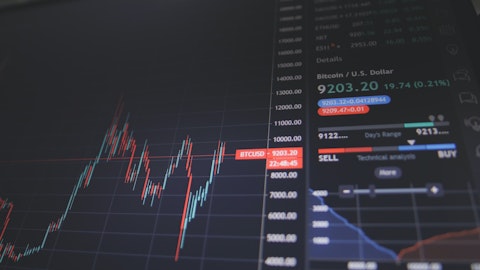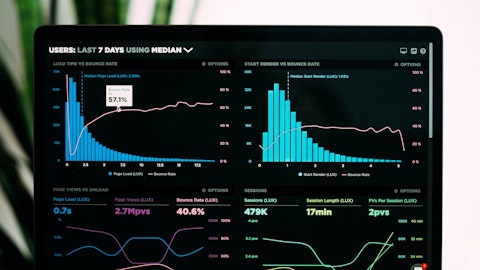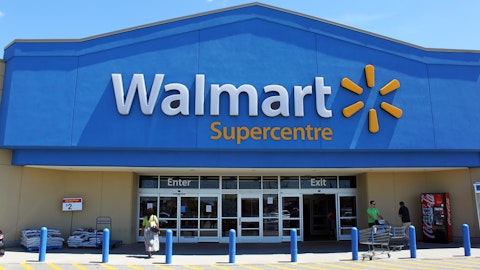And that could produce lower investment, all else equal. But the core strategic investments that we are making to secure the future of the company are not going to get modified because of the ups and downs of both the environment and…
Betsy Graseck: Okay. And part of the reason for asking is one of the debate points on JPMorgan stock has been around the capital charges, the capital march. And will capital be a bigger burden for you to bear as we go through the next couple of years? As you deliver on the positive operating leverage side, it gives you room to absorb some more capital obviously and still hit those IRR and ROTCE target on incremental investments. Maybe you could help us understand what level of capital increase you could absorb given the operating leverage you are expecting to generate? And maybe that’s an unfair question today, and it’s a better question for Investor Day, but that’s kind of the debate that’s out there on the stock.
Jeremy Barnum: Got it. I mean it’s a fair question. It’s a good question. I am not going to answer it super specifically. And Jamie may have some views there too. But let me just quickly say, we have kind of said that we feel quite confident about this company’s ability to generate 17% in the cycle. And that’s incorporating our sense of the current environment, the operating leverage that you talked about and the expectation of higher capital requirements with the 13.5% target in the first quarter of €˜24. The question of whether Basel III end game and other factors increase that number and how much of that we can absorb and still produce those returns is of course, impossible to answer right now. But I would remind you that it’s not just denominator of our expansion, unreasonable capital outcomes will increase costs into the real economy, which goes into the numerator too. It’s not what we want, but that is the possible outcome.
Betsy Graseck: Thank you.
Operator: The next question is coming from the line of Mike Mayo from Wells Fargo Securities. You may proceed.
Mike Mayo: Hi. I recognize you are evolving your business model and you are spending money to make more money and that your track record last decade was strong there. But as it relates to Frank acquisition that’s been in the news, I am just wondering what that says about the financial discipline for the 15 deals that you pursued, the $7 billion of investing each year and the one-fifth increase in expenses over 3 years to your guide of $81 billion in 2023. So, it’s really a question about financial discipline. And I know you can’t go in details on the Frank deal. And look, you earn the purchase price in two days, okay? So, I get that. And if there is fraud, there is only €“ you can’t do anything about fraud, but still it’s diverse management resources and attention.
So, maybe just in the specifics as it relates to the acquisition strategy, like who sources them? Who negotiates them? Who does the due diligence? Who runs it? And ultimately, who is accountable for all these 15 different deals? And when you have investments going across business lines, which is a strength of you guys, but who is ultimately accountable when these investments don’t go the way you want to? And Jamie, you recognized, a couple of years ago at Investor Day, you said, €œLook, sometimes you are going to waste money as you are innovating and you are growing.€ But ultimately, who is accountable when investment doesn’t go right, like the Frank deal or another deal or some of the other $81 billion that you expect to spend this year?





